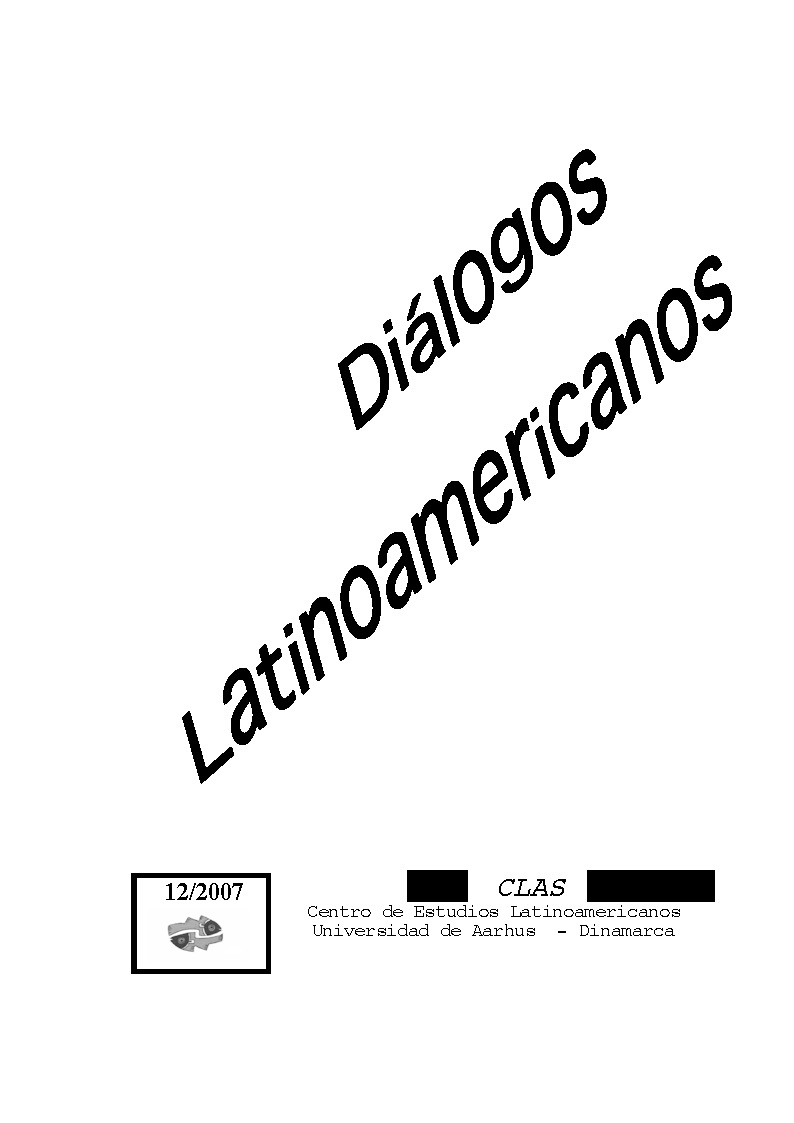Los desvíos de Calibán
emancipación y lenguaje en Reinaldo Arenas
DOI:
https://doi.org/10.7146/dl.v8i12.113616Palabras clave:
Cuban Revolution, Politics and Literature, Language, CriticismResumen
During the 1960s and ’70s, the pressure of politics over cultural
practices had crucial effects on literature. One of them was the rereading
of foundational texts that had, historically, provided the
metaphors to interpret the past, and, consequently, the meaning of the
present. The colonial allegory displayed by Shakespeare’s The
Tempest was one of these texts. In 1972, Roberto Fernández Retamar
recovered the opposite pair of Calibán and Próspero in his essay
Calibán. However, contrary to Rodo’s Ariel reading of the drama,
Retamar made Calibán a symbol of the imminent emancipation of the
continent. Nonetheless, in this (in) version of Shakespeare’s story,
Calibán also remained a slave, as he was perpetually committed to
demonstrate the Truth of an essential entity, the People of Latin
America. This paper discusses some other ways of imagining
Caliban’s emancipation. I will focus on Reinaldo Arena’s re-writing of
emancipation in “El Central” and the short story “El reino de
Alipio”.
Citas
- - - 1981. Termina el desfile. Barcelona: Seix Barral.
Bataille, Georges. 2001. La felicidad, el erotismo y la literatura. Ensayos 1944-1961. Buenos Aires: Adriana
Hidalgo.
Baudrillard, Jean. 1991. De la seducción. Buenos Aires: Ediciones Rei.
Brotherston, Gordon. 2000. Arielismo and anthropophagy: The Tempest in Latin America. In Hulme, Meter y
Sherman, William H. “The Tempest” and its Travel. 212-219.
Colás, Santiago. From Caliban to Cronus. A critique of cannibalism as metaphor for Cuban Revolutionary
Culture. In Kristen Guest (ed). 2001. Eating their Words. Cannibalism and the boundaries of cultural
identity. 129-148.
De la Nuez, Iván. 1998. I. Primera Costa. Calibán ante la aldea global. La balsa perpetua. Soledad y
conexiones de la cultura cubana. Barcelona: Casiopea.
Deleuze, Gilles y Guattari, Felix. 1997. Mil Mesetas. Capitalismo y esquizofrenia. Valencia: Pre-textos..
- - - 1978. Kafka. Por una literatura menor. México: Ediciones Era.
- - - 1973. Nietzsche et la philosophie. Paris: Press Universitaires de France.
Duchense Winter, Juan.1993. Capa de Próspero, piel de Calibán. Postdata n° 6 y 7, 71-79.
- - - 2001. Calibán by Lacan: ¡Posmodernos del Caribe, separaos! Ciudadano insano y otros ensayos
bestiales sobre cultura y literatura contemporáneas. San Juan: Ediciones Callejón.
Firmat, Gustavo Pérez. 1999. My own private Cuba. Essays on Cuban Literature and Culture. Colorado:
Society of Spanish and Spanish-American Studies.
Gilman, Claudia. 2003. Entre la pluma y el fusil. Debates y dilemas del escritor revolucionario en América
Latina. Buenos Aires: Siglo XXI.
Goldberg, Jonathan. 2004. Tempest in the Caribbean. Minneapolis: Univ. Of Minnesotta Press.
Guest, Kristen (Ed.). 2001. Eating their Words. Cannibalism and the boundaries of cultural identity. New
York: SUNY Press.
Hulme, Meter y Sherman, William H. 2000.“The Tempest” and its Travels. London: Reaktion Books.
Quintero- Herencia, Juan Carlos. 2002. Fulguración del espacio. Letras e imaginario institucional de la
Revolución Cubana (1960-1971). Rosario: Beatriz Viterbo.
Retamar Fernández, Roberto. [1971] 1995. Calibán. Contra la leyenda negra. Lleida: Universidad de Lleida.
Rojas, Rafael. 2000. Un banquete canónico. México: Fondo de Cultura Económica.
Descargas
Publicado
Cómo citar
Número
Sección
Licencia
A partir del volumen 31 (2022), los artículos publicados en Diálogos Latinoamericanos tienen licencia de CC-BY 4.0. Para más información sobre los términos de esta licencia consulte este enlace https://creativecommons.org/licenses/by/4.0/.
No hay licencia de Creative Commons para los volúmenes 1-30. Todos los derechos están reservados a les autores. Los lectores pueden descargar, leer y enviar enlaces a los artículos, pero no republicarlos.
Derechos de autor
Con la publicación del volumen 31 (2022) les autores poseen todos los derechos de autor de sus artículos y conceden a Diálogos Latinoamericanos el derecho de la primera publicación. Les autores también poseen los derechos de autor de las versiones previas de sus manuscritos, como el manuscrito entregado (pre-print) y el manuscrito aceptado (post-print).
Todos los derechos de autor de los artículos publicados en los volúmenes 1-30 están reservados a les mismes autores.





